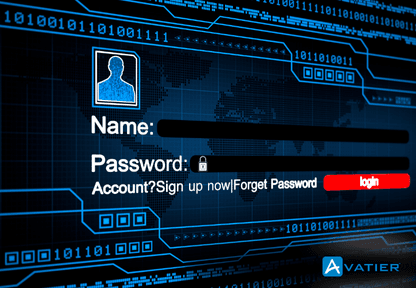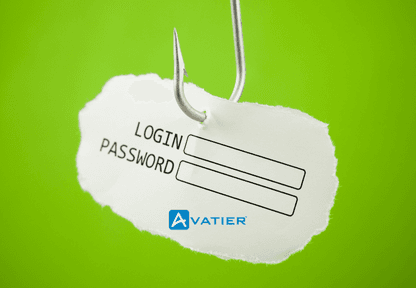August 17, 2025 • Mary Marshall
The Ethical Debate Around Define Provisioning in Digital Identity
Explore the ethical implications of define provisioning in digital identities. Balancing security, privacy, and user empowerment.

Define provisioning stands as a cornerstone process that enhances security and efficiency. However, as this automation becomes more ubiquitous, ethical questions about privacy, consent, and control inevitably arise. Avatier, a leader in identity management solutions, tackles these challenges by aligning ethics with advanced technology, emphasizing an approach that respects user rights without compromising security.
Define Provisioning in Digital Identity
User provisioning refers to the creation, modification, disabling, and deletion of user accounts and permission profiles across IT infrastructures and applications. It is a critical component in identity management that ensures users have appropriate access levels based on their roles. This process becomes complex for global organizations with diverse and scalable IT environments.
The Ethical Dimension
The crux of the ethical debate revolves around the tension between automation and privacy. Automated systems can inadvertently lead to over-provisioning or under-provisioning, which may compromise user privacy or impede their ability to perform necessary tasks.
Consent and Transparency: Users often remain unaware of how their access rights are determined and adjusted. Transparency becomes crucial to empower users, providing clarity on what data is collected and how access rights are allocated. Avatier’s solutions ensure compliance with key privacy regulations by offering transparent user access reviews, which empower both users and administrators to manage identities effectively. Learn more about user provisioning solutions.
Minimizing Overreach: Ethical provisioning involves implementing Role-Based Access Control (RBAC) and Principle of Least Privilege (PoLP) to limit access rights to only what is necessary for a user to perform their job. Avatier specializes in adaptive identity management solutions that align with these principles to enhance security while mitigating risks associated with excessive access rights.
Balancing Automation with Human Oversight: While automation facilitates efficiency and consistency, the need for human oversight remains integral. Approving access changes or reviewing exceptions are areas where human judgment plays an essential role. Avatier addresses this with a blend of automated workflows and manual approval processes that bring balance to identity management. Explore Avatier’s balanced automation approaches.
Impact on Compliance and Security
The integration of ethical principles in provisioning is not just a matter of philosophy; it has tangible impacts on compliance and security. As regulatory landscapes tighten with standards like GDPR, HIPAA, and others, organizations must adapt their identity management practices to comply or face severe penalties. Avatier supports organizations through compliance-focused identity solutions that automate audit trails and streamline reporting for regulatory adherence. Discover compliance management software.
Competitors such as Okta and SailPoint also acknowledge these challenges. For instance, Okta’s emphasis on secure, yet user-friendly access management solutions illustrates the industry’s shared focus on blending usability with compliance. Similarly, SailPoint’s identity governance solutions highlight the growing emphasis on visibility and the ethical deployment of access rights across enterprises.
The Role of Artificial Intelligence
AI-driven identity management systems, like those from Avatier, are addressing ethical dilemmas by refining the precision of automated provisioning and access controls. These AI systems learn from access behavior data to assist in identifying potential security risks and provisioning inaccuracies. Nevertheless, ethical AI use requires transparency and accountability to maintain user trust.
Future Directions
The future of ethical provisioning in digital identity hinges on fostering a culture that values security and respects privacy. Enterprises are encouraged to establish clear ethical guidelines for digital identity management, invest in systems that promote user empowerment and incorporate ethical considerations into their overall security strategies.
As Avatier continues to innovate with its user-centric identity management platform, it remains at the forefront of integrating contemporary ethical standards with technological innovation, ensuring organizations protect user identities effectively and ethically.
Statistics and Insights
The importance of sophisticated identity management systems is underscored by the increasing instances of data breaches. According to a report by IBM, the average cost of a data breach in 2022 was $4.35 million, and companies with an extensive identity management system reported 50% fewer breaches than those without IBM Data Breach Report 2022.
Conclusion
In conclusion, the ethical debate around define provisioning in digital identity extends beyond technology into the realm of values and principles. By aligning advanced identity management solutions like those offered by Avatier with ethical considerations, businesses can achieve a balance that enhances both security and user trust. As the digital identity landscape continues to evolve, maintaining this balance will remain crucial for preserving the integrity and privacy of users worldwide.
By focusing on ethical provisioning, Avatier not only secures digital environments but also ensures that its practices foster trust and transparency—qualities essential for navigating the complexities of modern digital ecosystems.









